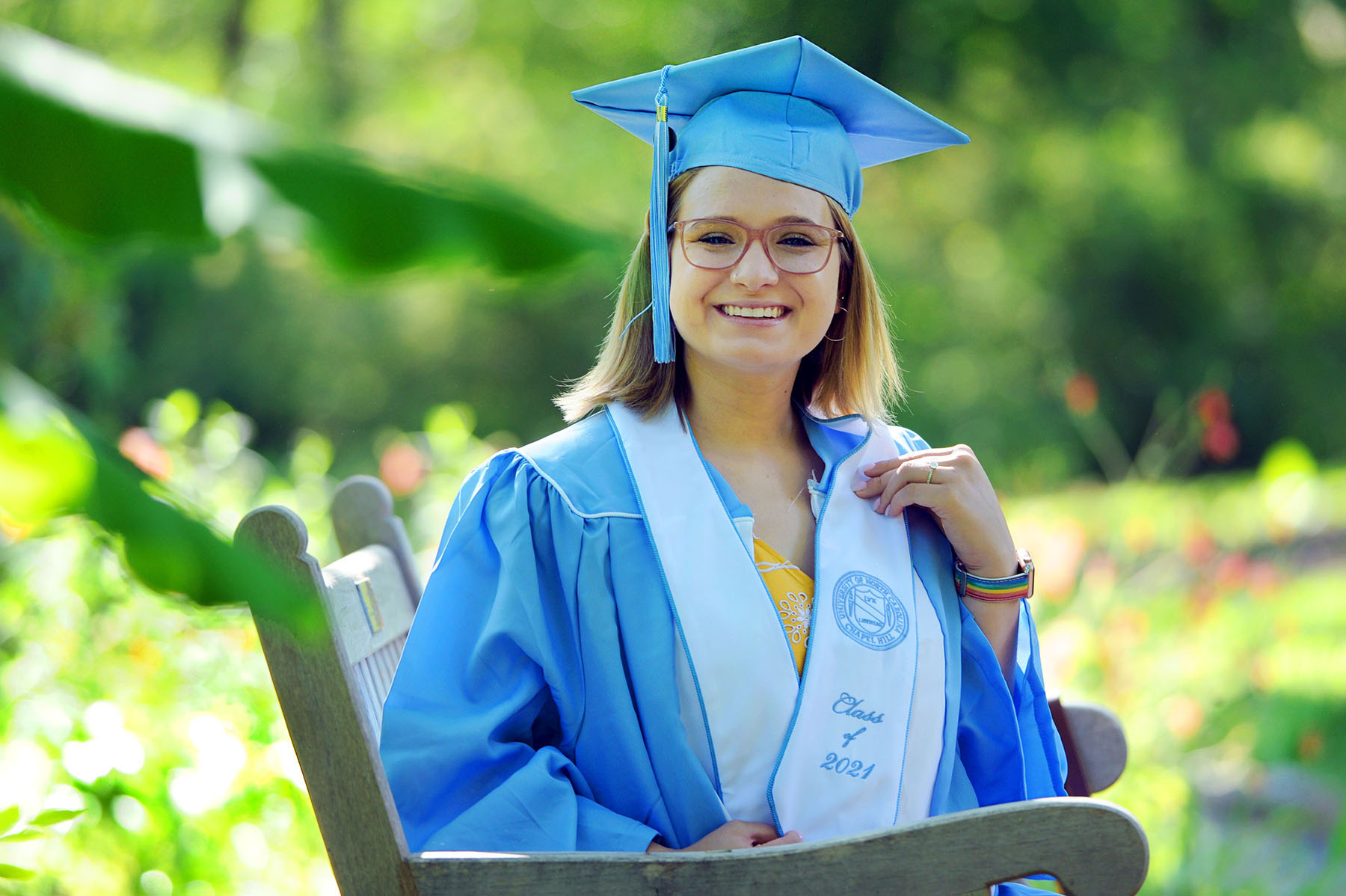Savannah Newton has spent years volunteering with a human relations nonprofit based in Greensboro. She presented her thesis on mass incarceration trends at a major sociology conference and is helping a professor study the impact of COVID-19 on precarious workers in New York City.

Senior Savannah Newton has adopted a personal mantra of having a positive impact on her home state. For her entire Carolina career, she’s been a counselor and an intern with the National Conference for Community and Justice (NCCJ) of the Piedmont Triad, a nonprofit based in Greensboro that works to fight bias, bigotry and racism.
The Stokesdale native’s passion for social justice started before she got to campus, when she participated in NCCJ’s ANYTOWN, a weeklong leadership and social justice program for area high school students. She has returned over multiple summers to be a counselor for that program, which she calls “life-changing.”
“I had no idea what it meant to be an upper-class white woman,” she said. “I learned that you can use your privilege to support minority communities and to speak out against things that you know are unjust.”
At NCCJ, she also organized an annual interfaith tour, where people learn about Judaism, Islam and Christianity as they attend different religious services.
Newton is pursuing a double major in sociology and economics with a minor in social and economic justice. She received the department of sociology’s Howard W. Odum Undergraduate Award, given to the most outstanding senior based on academic performance, and she has served as the department’s first undergraduate learning assistant. The Honors Carolina student is also a member of three academic honor societies.
“I have always had this drive and motivation to help people,” she said. “I think I was drawn to sociology because it seemed like a different way of making an impact without giving involved in politics.”
She presented her senior honors thesis on mass incarceration trends at the virtual Southern Sociological Conference this spring.
“I looked at two supplemental forms of incarceration. I examined immigration detention centers, framing that as a form of incarceration, and the idea of e-carceration, or electronic monitoring when people are out on parole,” she said. “We are relying on these alternative methods of incarceration to control people of color.”
She has also assisted Alexandrea Ravenelle, an assistant professor of sociology, with a large research study on the impact of the pandemic on precarious workers in New York City.
“My main job on the team has been analyzing more than 200 interviews with precarious workers, who have all had different experiences,” she said. “We’re looking at individuals who are not just working for Uber or DoorDash, but people in the restaurant industry and creative freelancers. It has really opened my eyes to inequalities in the way COVID-19 has impacted people’s lives.”
Newton said one of the most pleasant surprises about her Carolina journey has been the close relationships she has developed during her senior honors thesis class taught by Kenan Distinguished Professor of Sociology Jacqueline Hagan.
“The eight of us in class have gotten to know each other so well, and we’ve developed friendships our last year in a way I never thought I would,” she said. “We’ve really learned what we’re passionate about.”
Newton’s post-graduation plans include moving to Richmond, Virginia, where she will try to get connected to social justice work there. She eventually hopes to apply to Ph.D. programs in sociology, focusing on criminology. In the meantime, she’ll continue to be a part of Ravenelle’s research team.
If she had to tweet a message to send off her fellow graduates, Newton would offer this: “Embrace the unknown and the potential for change.”
“I think my own Carolina experience is definitely reflective of that,” she said. “Some of my best experiences were the things I didn’t plan, so I would advise them to trust the way things turn out and to go along with the process.”
By Kim Spurr, College of Arts & Sciences
